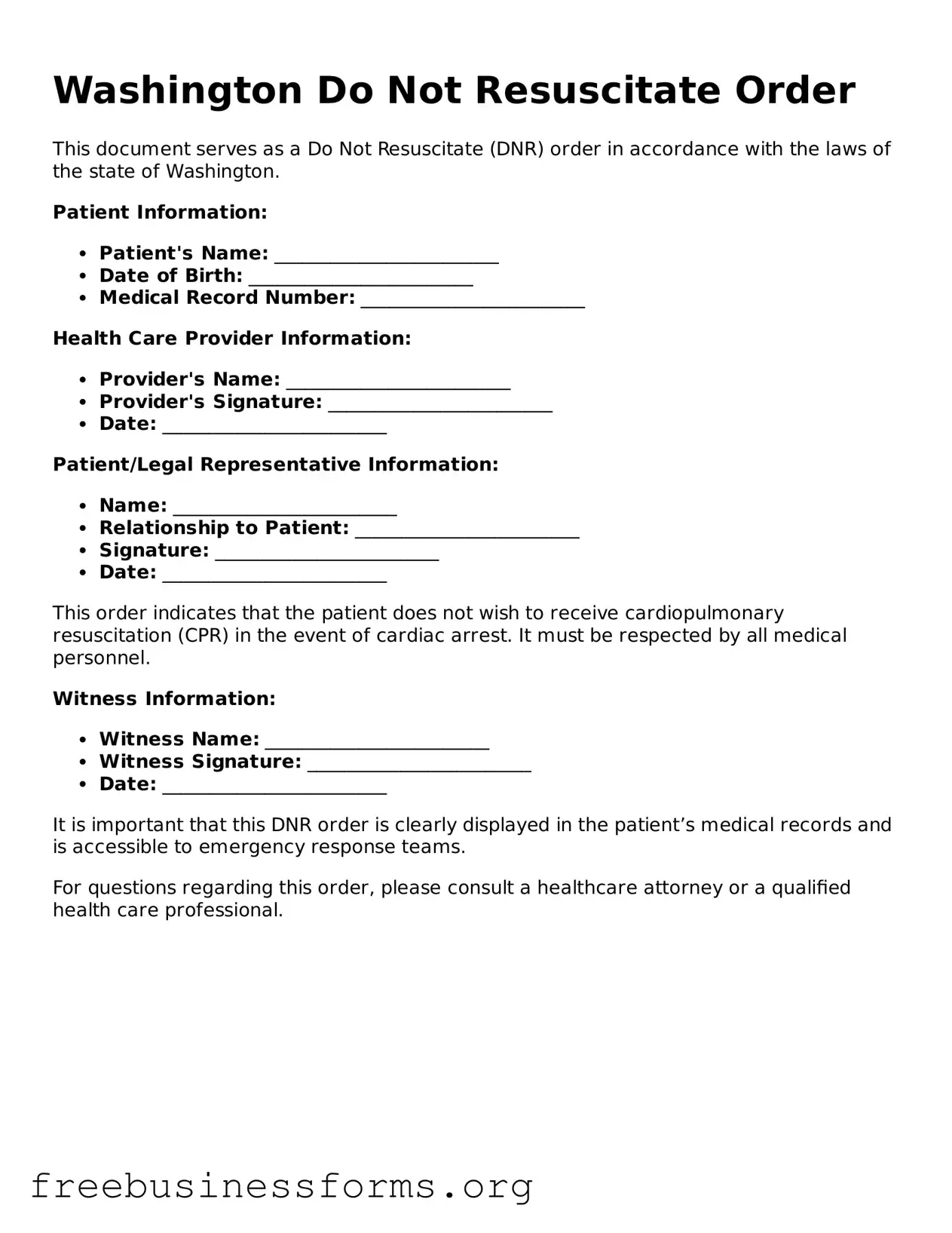Blank Do Not Resuscitate Order Template for Washington
A Washington Do Not Resuscitate (DNR) Order form is a legal document that allows individuals to express their wishes regarding resuscitation efforts in the event of a medical emergency. This form ensures that healthcare providers respect the patient's preferences, particularly when they are unable to communicate their decisions. Understanding the implications and requirements of this form is essential for both patients and their families.
Open Form Here

Blank Do Not Resuscitate Order Template for Washington
Open Form Here

Open Form Here
or
↓ PDF File
Quickly complete this form online
Complete your Do Not Resuscitate Order online quickly — edit, save, download.